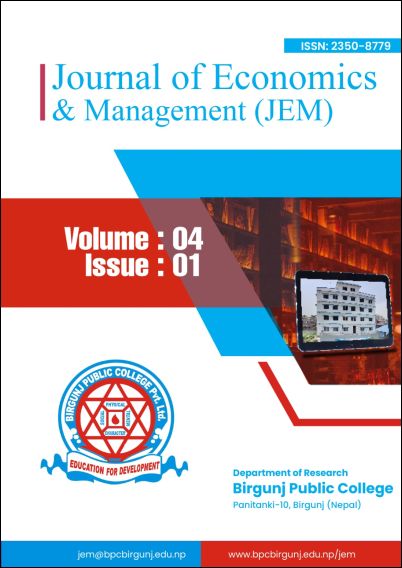Climate Change Impacts of Health Workers Without Safety Measures on Working Places
DOI:
https://doi.org/10.3126/jem.v4i1.72884Keywords:
Selected:Climate change, Job, Safety, worker, workAbstract
This study aims to explore the effects of climate change on health workers in Nepal, particularly in workplaces lacking safety measures. Climate change poses significant threats that can accumulate over time, leading to long-term changes in health and reliance on occupational safety and health (OSH). Factors such as rising ambient temperatures, air pollution, ultraviolet radiation exposure, and extreme weather events adversely affect OSH. Examples of climate change impacts include sea-level rise, warming oceans, shrinking ice sheets, glacial retreat, ocean acidification, and reduced snow cover. This research employs a review-based approach, utilizing systematic literature analysis to recommend pragmatic solutions. The researcher primarily employs deductive reasoning throughout the review process, employing in-depth archival analysis and intensive review strategies. The study finds that climate change affects organizational operations, leading to illnesses or injuries among health workers and increasing stress levels. Many health workers in Nepal operate without adequate safety measures; for example, healthcare personnel often lack gloves and masks, construction workers do not use protective gear, and farmers apply pesticides without safety equipment. These unsafe practices expose workers to respiratory and cardiovascular diseases, reproductive dysfunctions, vector[1]borne diseases, and other climate-sensitive health risks. The findings underscore the urgent need for improved occupational safety measures to protect health workers from the adverse effects of climate change.
Downloads
Downloads
Published
How to Cite
Issue
Section
License
Copyright (c) 2024 Birgunj Public College

This work is licensed under a Creative Commons Attribution-NonCommercial 4.0 International License.




